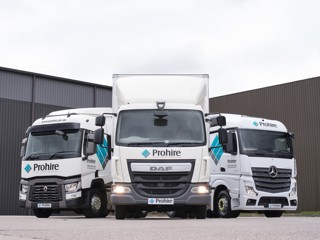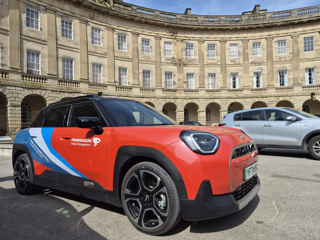A rise in leasing payments between 2022 and 2024, reported by members of the British Vehicle Rental and Leasing Association (BVRLA), reduced demand for battery electric vehicles (BEVs) by more than 220,000 vehicles last year.
That’s according to a new report new from Oxford Economics, which has been commissioned by the BVRLA.
Looking ahead, the research suggests that more than half of the fall in used prices will result in higher leasing payments and it is anticipated to lower BEV demand by 70,000 vehicles by 2027.
Due to the Zero Emission Vehicle (ZEV) mandate, which will require 80% of new cars and 70% of new vans sold in Great Britain to be zero emission by 2030, the report suggests that sales of internal combustion engine (ICE) vehicles could be restricted if demand for BEVs is insufficient.
The BVRLA is urging the Government to act now to strengthen demand for used electric vehicles (EVs).
Used EV-targeted grants, tax incentives and a confidence-building communication campaign would boost demand and stabilise prices, which have fallen dramatically, it says.
Used EV values have fallen by half (50%) over the past 24 months, with Fleet News revealing how leasing companies, with large plug-in fleets, have been exposed to the losses.
The BVRLA says that the urgent need for intervention has been highlighted by the new forecasting from Oxford Economics, which shows that used EV prices will carry on falling over the rest of this decade.
Between 2024 and 2030, used EV car prices are predicted to fall by a further 28%. This fall is on top of an existing slump that has already seen them lose half of their value over the last two years.
The fragile electric van market will also see used prices drop, by 12%.
While good news for used EV buyers, the scale of value destruction being absorbed by the vehicle leasing industry, which is responsible for 75% of new EV registrations, is unsustainable, says the BVRLA.
Lease rates on new EVs are priced on the loss of value or depreciation a vehicle will experience over the length of a contract rather than its total cost. As the depreciation experienced by EVs increases, so does the price of leasing a new one.
Falling confidence in used EV values is already pushing up lease rates and deterring potential customers from taking the leap to zero-emission motoring, the report shows.
Oxford Economics modelling estimates that this combination of reduced trust and rising lease rates will result in nearly 300,000 fewer new EVs being registered between 2023 and 2027.
Annual new EV registrations only just reached the 300,000-milestone last year.
“The crisis we are seeing in the used EV market is a direct threat to the Government’s ambitious ZEV Mandate and ICE phase out targets,” said BVRLA chief executive, Gerry Keaney.
“New EVs are expensive while used EVs are stunningly cheap and getting cheaper, but someone needs to pay for this price gap.
“It is motor finance companies and new EV drivers that are footing the bill, through massive depreciation and increased lease rates.
“These are the fleets and customers that have been responsible for driving demand for EVs up to now. We cannot afford for them to lose confidence in the transition.”
The BVRLA recently launched the #happyEVafter campaign, in conjunction with Auto Trader, EVA England and the NFDA. Together, the organisations, which represent a wide spectrum of EV owners as well as the wider automotive supply chain, are calling for targeted intervention from the Government to restore confidence in the used EV market by boosting demand.
The coalition is asking the Government to launch an information campaign to counter negative EV myths; support standardised battery health certificates to reassure used EV buyers; launch a targeted used EV plug-in grant; cut VAT on used EVs by 50% for four years; provide a special 0% Benefit-in-Kind tax rate for used EVs for four years; and allow the Civil Service to access used EV salary sacrifice schemes

























Login to comment
Comments
No comments have been made yet.